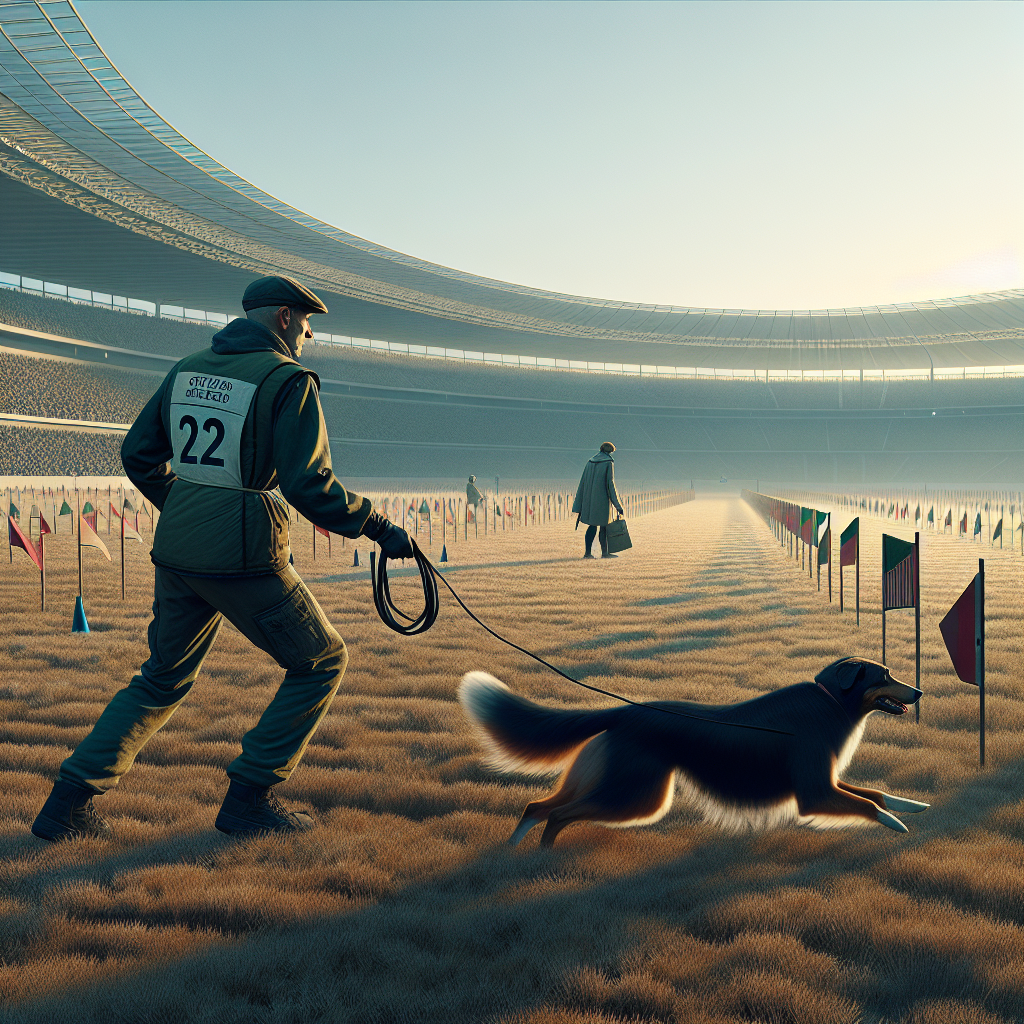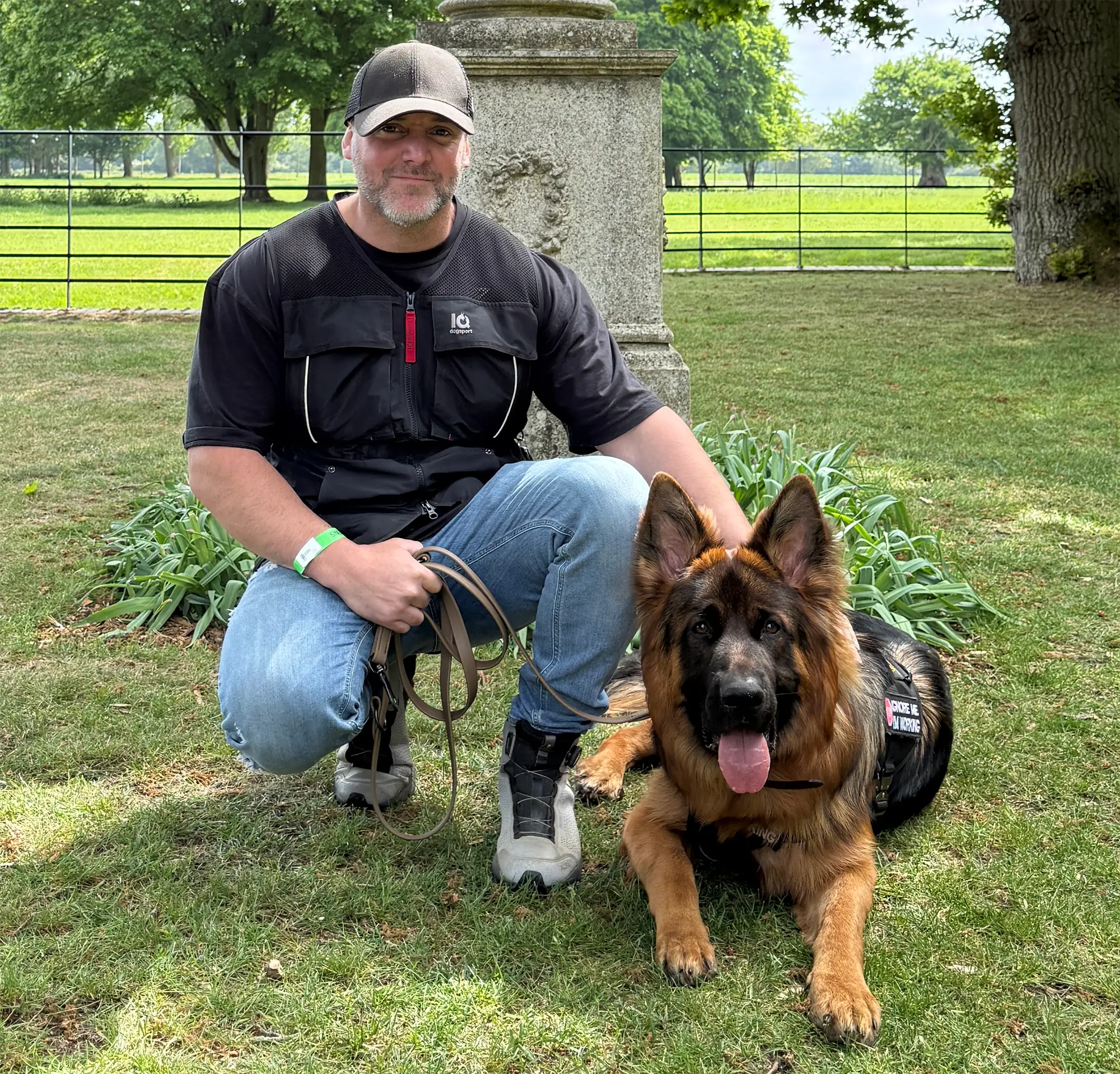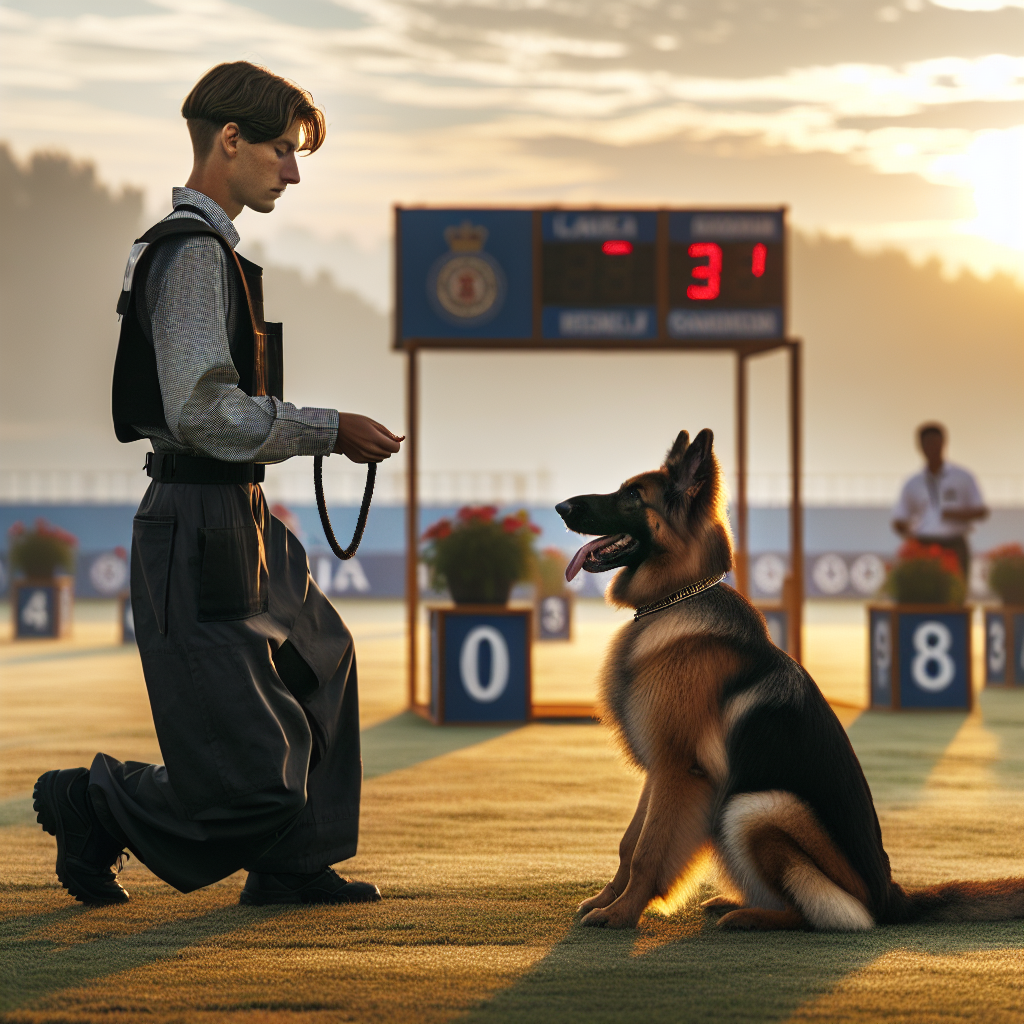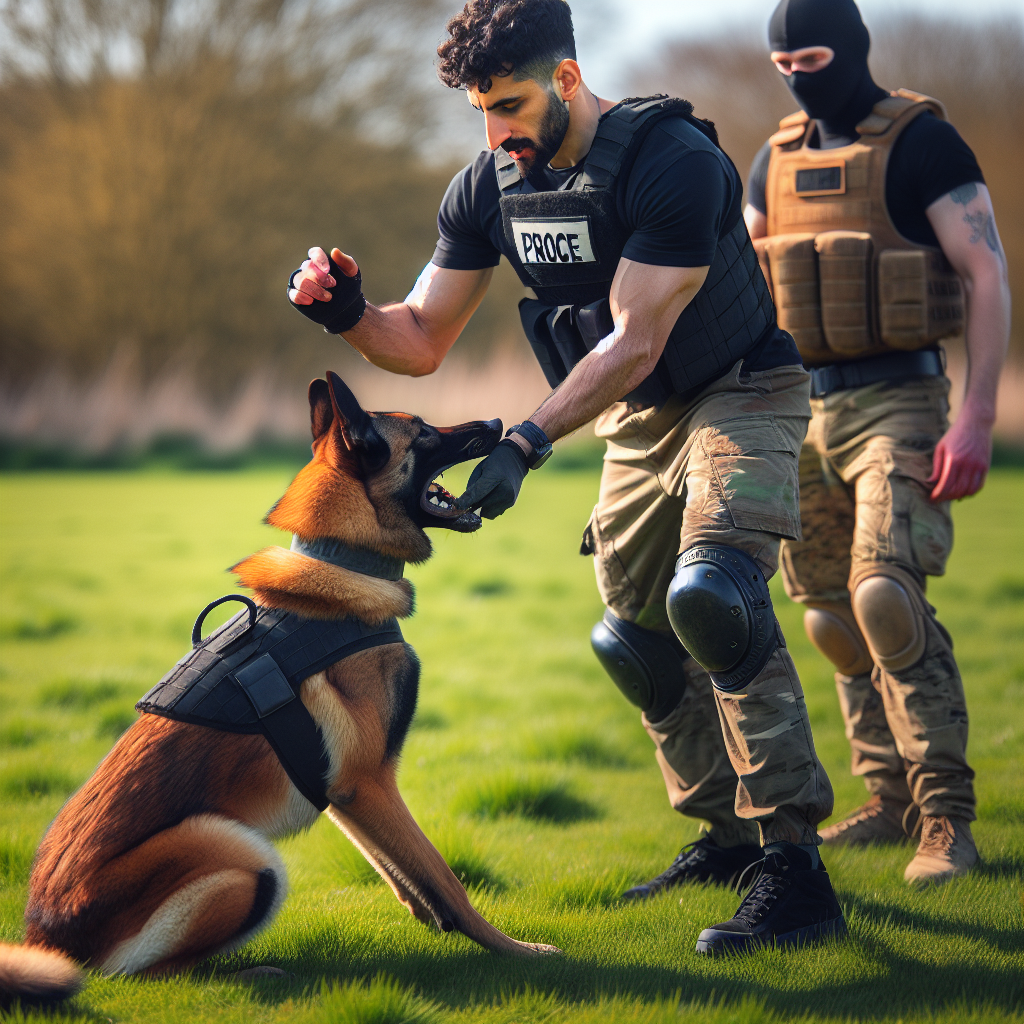IGP Club Trial vs National Prep

IGP Club Trial vs National Prep
IGP Club Trial vs National Prep is a question every serious handler will face. At Smart Dog Training, we prepare dogs and handlers for both with the same structured system, then raise the standard for national success. This article lays out the exact differences in demands, the training timelines we use, and how the Smart Method turns club-ready teams into national-level performers. If you want guidance from a Smart Master Dog Trainer, our SMDT team can map the path for your dog and your goals.
What Each Stage Demands
A club trial proves your dog understands the work under local pressure. National prep expects precision, proofing, and resilience against higher stress. The distinction is not about different skills. It is about stronger pictures, tighter criteria, steadier nerves, and more reliable performance anywhere. That is why IGP Club Trial vs National Prep matters. You must know which criteria you are training for and when to raise the bar.
The Smart Method For IGP Success
Smart Dog Training builds performance on the five pillars of the Smart Method. We create clarity with precise markers and commands. We apply fair pressure and release to build accountability. We drive motivation with rewards that matter. We structure progression through distraction, duration, and difficulty. We preserve trust so the dog works with confidence. This is how we approach IGP Club Trial vs National Prep in every phase A, B, and C.
Club Trial Goals And Standards
At club level, our targets are simple but strict. The dog must show clear understanding of the rules in a familiar setting, with clean behavior and minimal handler help. The picture should be obvious to the judge. Scores often reflect foundation quality. If clarity is weak, points leak in every exercise.
Scoring Expectations At Club Level
- Phase A tracking: consistent footstep commitment, true corner work, steady article indications
- Phase B obedience: clean heeling picture, fast sits downs stands, committed retrieves, straight fronts, a decisive send away
- Phase C protection: quick locating, strong bark and hold, clean grips, immediate outs, solid guarding, calm transports
In a club trial you can succeed with a few cosmetic flaws. At nationals, those same flaws become expensive. That is a core difference in IGP Club Trial vs National Prep.
Typical Errors At Club Trials
- Unclear markers that blur when the dog is right or wrong
- Handler body cues replacing training
- Leaky obedience with lagging heeling or crooked finishes
- Inconsistent outs under higher drive
- Shallow tracking commitment on aged or contaminated fields
We fix these with Smart Dog Training protocols that improve clarity and build responsible behavior with motivation intact.
Handler Mindset For Club Day
Club trials are where you confirm your foundation. Your goal is proof of concept. Keep your handling simple and consistent with training. Use the event to benchmark where pressure affects your team. Then we plan upgrades for national prep.
National Prep Goals And Standards
Nationals raise the bar. The judge expects a crisp picture and near automatic precision. The environment is louder, the helpers are different, and the tracking field is less forgiving. In IGP Club Trial vs National Prep, the shift is from demonstrating skills to demonstrating reliability under stress.
Raising Criteria Across Phases A B C
- Phase A: longer ageing, heavier contamination, varied ground cover, unpredictable field choice
- Phase B: more spectators and noise, stricter heeling standard, exact fronts and finishes
- Phase C: different helper styles, faster pressure changes, exact outs and guarding with zero handler help
We build this step by step with the Smart Method so your dog understands the job at every level.
Travel And Environment Proofing
Nationals often mean long travel, new hotels, late-night routines, and early starts. Dogs feel that stress. We proof it during national prep so the routine is normal. Crate rest, toilet timing, warm up, and ring-entry rituals are trained, not left to chance. That is a key part of IGP Club Trial vs National Prep.
Phase A Tracking Differences
Tracking at nationals punishes weak foundations. We require deep footstep intent and calm article behavior on any surface. The dog must work the scent and ignore the noise in their head.
Field Selection And Ageing
For club trials, we often train on fields that mirror local conditions. For national prep, Smart Dog Training rotates surfaces and contamination levels. We train on mature crop, mixed grass, short turf, and stubble. We add cross tracks and wind changes. We use longer ageing to teach the dog to trust the track rather than rush. This is how we build a national-ready nose.
Indications And Article Handling Under Pressure
At club level, a brief fidget at an article might cost a half point. At nationals, that becomes a full point or more. We drill indications with clear markers for correct behavior, fair pressure if the dog guesses, and a confident release back to the work. Article behavior must be automatic, not handler dependent.
Phase B Obedience Differences
In obedience, the national picture is tighter and more animated. We want drive without chaos, focus without tension, and speed without slop. The dog must show joy and control together. IGP Club Trial vs National Prep in obedience is about polishing every picture the judge sees.
Heeling Picture And Precision
- Head carriage consistent and comfortable, not forced
- Shoulder position aligned to the seam, no forging or crabbing
- Clean turns with rear-end awareness
- Focused attention that does not flicker with noise or applause
Smart Dog Training uses step-based progression. We set a clear heel position with markers, then layer distractions. Pressure and release build responsibility to maintain position, and motivation keeps the picture happy.
Retrieves And The Send Away
At club level, a small chew on the dumbbell might pass with a minor deduction. At nationals, chews erode your score fast. We condition a quiet, full grip, a straight return, and clean fronts and finishes. The send away must be decisive and fast, with a precise down on command. We build that with clear markers, proofed across different fields and crowd noise. That is the Smart difference in IGP Club Trial vs National Prep.
Distraction Proofing With People And Noise
National rings bring whistles, clapping, speakers, and cameras. We train neutrality to all of it. We present these distractions in a layered plan so the dog learns to ignore new stimuli while staying in drive.
Phase C Protection Differences
Protection is where pressure exposes training. Club trials can mask small issues. Nationals do not. We want a dog that understands the task, respects the out, and displays clear guarding without handler input. Control in drive is our target.
Control Over Drive
We never dampen drive to look controlled. We structure it. The dog learns that responsibility keeps the game alive. Fair pressure and release builds accountability in the out, the guarding, and the transports. That is why Smart Dog Training dogs keep power and clarity together.
Outs Guarding And Transports At National Standard
- Outs on the first command with full, immediate release
- Neutral guarding that is intense but clean
- Calm, correct heel position and body line during transports
- No handler prompts, no second tries
We replicate national helper styles so your dog reads different pictures. IGP Club Trial vs National Prep is often decided by how your dog handles a new helper with new pressure.
Helper Styles And Neutrality
We run dogs on helpers who move differently, carry the sleeve differently, and pressure differently. The dog learns to read the work, not the person. That is national prep done right.
The Smart Prep Timeline
Smart Dog Training uses a clear timeline to move from club-ready to national-ready. Each stage has a focus and measurable outcomes.
Sixteen Week Macro Plan
- Weeks 1 to 4 foundation audit: clarify markers, rebuild weak links, reset pictures that leak points
- Weeks 5 to 8 proofing phase: add surfaces, noise, travel routines, and helper variations
- Weeks 9 to 12 pressure phase: trial simulations with full routines and minimal reinforcement
- Weeks 13 to 16 polish and taper: shorten sessions, sharpen ring craft, refine arousal to the sweet spot
This is how we treat IGP Club Trial vs National Prep so your dog arrives conditioned and confident.
Weekly Progression Targets
- One full A run with ageing and contamination
- Two B sessions with ring walkthroughs and patterning under noise
- Two C sessions with different helper styles
- One conditioning day and one full rest day
- Video review and scorecard after every simulation
Consistency is where national scores are made. We use objective checkpoints each week.
Ready to turn your dog’s behaviour around? Book a Free Assessment and connect with a certified Smart Master Dog Trainer - available across the UK.
Smart Pillars Applied To IGP
The Smart Method drives every session. We never guess. We measure and progress.
Clarity And Accountability
We establish clear commands and marker meanings for every exercise. Yes and no are black and white. Pressure is applied fairly when the dog breaks criteria, and the release is immediate when the dog returns to standard. That balance keeps trust intact while building responsibility.
Motivation And Variable Reward
We choose rewards that matter to your dog. Food, toys, and social praise are layered with variable schedules so performance is not dependent on seeing the reward. This is essential when you shift from club practice to national rings where reinforcement is delayed.
Progression That Sticks
We add distraction, duration, and difficulty step by step. The dog learns that the picture does not change even when the environment does. That is the heart of IGP Club Trial vs National Prep.
Trust And Teamwork
We protect the bond. Training should grow confidence and reliability. Dogs that trust their handlers recover faster under pressure and deliver steadier scores.
Handler Skills And Ring Craft
Nationals expose handler habits. We make ring craft part of training so you never improvise on trial day.
Footwork And Patterning
We drill consistent pace, posture, and transitions. The dog reads your body. If your handling changes under stress, your picture breaks. We rehearse the exact ring patterns so they feel automatic, not forced.
Judge Awareness And Timing
You must know where the judge stands and how your dog looks from that angle. We teach you to deliver clear commands with steady tone, then get out of the way. That is part of professional ring craft with Smart Dog Training.
Mental Rehearsal And Stress Management
We script your warm up, your waiting routine, and your entry. We use breathing drills, visualization, and checklists. If you stay calm, your dog reads that calm. This is a key difference in IGP Club Trial vs National Prep.
Dog Health And Conditioning
Performance is built on fitness. We include conditioning as a formal part of prep so your dog has the strength and endurance to hold criteria when it counts.
Strength Cardio And Recovery
- Hill work, controlled sprints, and interval patterns
- Core strength with balanced surfaces and controlled movement
- Range of motion and joint care with warm up and cool down
- Recovery days, hydration, and temperature management
Conditioned dogs track cleaner, heel steadier, and bite harder with control. That is how Smart Dog Training prepares national teams.
Equipment And Compliance
Trial mistakes often come from simple oversight. We use checklists so nothing slips.
Collars Leashes And Dumbbells
- Approved collars and correct leash lengths
- Proper dumbbell weights and balanced fit
- Well maintained sleeve and blinds for preparation work
We run rulebook checks during simulations so you never lose points for admin errors.
Common Pitfalls From Club To National
- Keeping criteria loose at training then asking for tight pictures at trials
- Overusing rewards in the last month and not practicing delayed reinforcement
- Skipping travel proofing and hotel routines
- Training only on home helpers and home fields
- Changing handling patterns on trial day
IGP Club Trial vs National Prep is won by eliminating these small leaks before the big day.
Measuring Progress With Smart Checkpoints
Video Review And Scorecards
We score you like a judge. We track points per exercise and identify chronic leaks. We then adjust the plan with exact drills that fix the picture. This is how Smart Dog Training raises real world scores, not just training reps.
When To Enter And When To Wait
Enter a club trial when the foundation is stable, the dog understands the routine, and your ring craft is consistent. Step toward nationals when you have three successful simulations without major point loss and no handler help. If a key behavior still needs prompts, wait, fix, and try again. Patience now protects your score later.
Working With A Smart Master Dog Trainer
An SMDT will map your exact route from club trial to nationals. We will run your dog on different helpers, proof tracking on unknown fields, and polish obedience pictures to national standards. You will have a weekly plan, a video review system, and a clear taper into the event. That is the Smart Dog Training advantage in IGP Club Trial vs National Prep.
FAQs
How long does national prep take after a club trial
Most teams need 12 to 16 weeks to move from club-ready to national-ready. The exact timeline depends on foundation quality and how quickly your dog adapts to new pressure. We plan this week by week with measurable goals.
What is the biggest difference between club and national tracking
Ageing and contamination. National fields challenge dogs to trust their nose and work through pressure. We train longer ageing, mixed surfaces, and cross tracks so your dog stays committed.
How do I keep obedience fast without losing precision
Use the Smart Method. Build clarity first, then add speed with rewards that keep the picture clean. Add fair pressure and clean release if criteria drop. Speed stays when responsibility is learned.
How do I fix slow or unreliable outs
Rebuild the out with clear markers, a fair pressure and release pattern, and neutral guarding practice. Proof it with different helpers. Then integrate it into full routines so the behavior holds under drive.
What should my week look like during peak prep
One full tracking run, two obedience sessions under noise, two protection sessions with different helper styles, one conditioning day, and one rest day. Add one full simulation with video and a scorecard.
When should I taper before nationals
Usually 7 to 10 days out. Reduce session length, maintain clarity, and keep arousal in the sweet spot. Focus on ring craft, travel routines, and recovery so your dog peaks on the day.
Conclusion
IGP Club Trial vs National Prep is not two different sports. It is one path with rising standards. Smart Dog Training shows you how to raise those standards without losing motivation or trust. Build clarity. Add fair accountability. Progress step by step. Then proof the routine until the picture is unshakeable in any ring.
Your dog deserves training that truly works. With certified Smart Master Dog Trainers (SMDTs) nationwide, you'll get proven results backed by the UK's most trusted dog training network. Find a Trainer Near You



